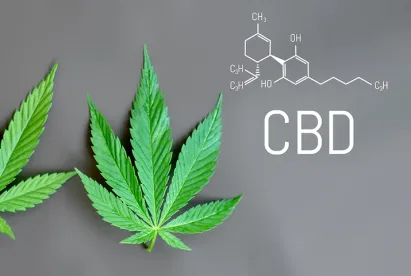We have previously blogged about the regulation of cannabidiol (CBD) products by the Food and Drug Administration (FDA) and the government’s actions to create a comprehensive regulatory framework for CBD, which includes introducing the Cannabidiol and Marijuana Research Expansion Act and hosting an FDA Public Hearing in May 2019 to obtain scientific data and safety information regarding cannabis-derived compounds. Most recently, on March 5, 2020, Commissioner Stephen Hahn provided an update to FDA’s efforts to increase education, research, and enforcement in this area. While the update alerts consumers, health professionals, and industry to FDA’s ongoing efforts to regulate CBD products, the efforts themselves are not dramatically new.
For starters, Dr. Hahn flags educating the public of the risks to public health caused by CBD products as a paramount issue FDA plans to tackle. The update notes that FDA is concerned people are wrongly assuming that FDA has evaluated most CBD products on the market (including oil drops, capsules, syrups, food products, cosmetics, and other topicals) as being safe. In reality, FDA has only approved one prescription drug for the treatment of rare, severe pediatric epilepsy disorders. Otherwise, all other CBD products are unapproved. Therefore, FDA plans to focus on educating the public about CBD products’ safety and risks.
In an effort to expand its educational reach, FDA intends to target consumers broadly, specific at-risk populations, and health care professionals in order to convey risks associated with CBD use, such as potential liver injury, interactions with other drugs, and male reproductive toxicity, among other side effects. To do so, FDA promises to continue to update its online resources for consumers, researchers, industry, and regulatory partners to share and collect information.
Secondly, FDA provides an update to the data and research collected by the agency regarding closing “the knowledge gaps about science, safety and quality of many of these products, as well as further evaluate any potential benefits outside of the one FDA-approved drug product.” To that point, FDA continues to seek reliable and high-quality data geared towards: the sedative effects of CBD; the impacts of long-term sustained or cumulative exposure to CBD; transdermal penetration and pharmacokinetics of CBD; the effect of different routes of CBD administration (e.g., oral, topical, inhaled) on its safety profile; the safety of CBD for use in pets and food-producing animals; and the processes by which “full spectrum” and “broad spectrum” hemp extracts are derived, as well as what the content of such extracts is, and how these products may compare to CBD isolate products.
To address this, FDA encourages facilitating and initiating more research on CBD, providing venues for industry and researchers to share new data with the agency, and identifying opportunities to collaborate with other agencies on the issue. In addition, FDA plans to implement new public and transparent ways for shareholders to provide new and emerging information in real time. FDA's March 2020 update on this issue provides the most notable news therein. FDA is reopening the public docket used for the May 2019 public hearing. The docket, which originally closed on July 16, 2019, allowed the input of comments containing scientific information about the issues associated with food and other products that contain cannabis and cannabis-derived compounds, such as CBD. FDA hopes that reopening this docket indefinitely will provide a conduit for collecting high-quality data on the subject.
Lastly, Dr. Hahn notes in the update that the agency continues to monitor the marketplace and take appropriate action against unlawful CBD products that pose a risk of harm to the public. Presently, FDA intends to continue to pursue action against CBD products marketed with claims of therapeutic benefit, such as treating or curing serious disease (like cancer and Alzheimer’s disease) or other unapproved drug claims. Additionally, FDA fears the risks associated with “products marketed with other false claims such as omitted ingredients, incorrect statements about the amount of CBD, products marketed for use by vulnerable populations like children or infants, and products that otherwise put the public health at risk.” Aside from such claims, Dr. Hahn raised concerns of product contamination from substances such as heavy metals.
In response, FDA is evaluating the issuance of a risk-based enforcement policy that would provide greater transparency and clarity regarding such risks and concerns. These are just some examples of FDA’s growing efforts to address CBD use in an attempt to uphold public health standards.
Overall, this agency “update” is less of an update on progress and more a reminder of FDA’s ongoing work to create a regulatory framework for CBD products. Key takeaways include FDA's indefinite reopening of the public docket to advance research and communications, and its warning to industry that FDA will continue to monitor and enforce against unlawful CBD products. As the topic of CBD regulation will undoubtedly continue to make headlines, we will continue to keep you informed.




 />i
/>i

